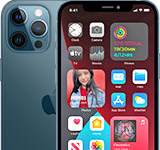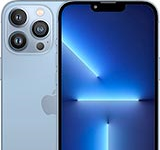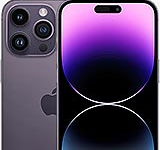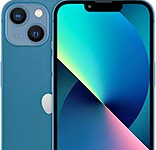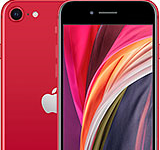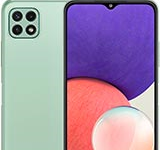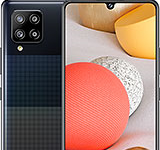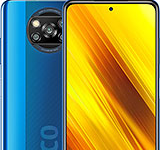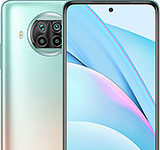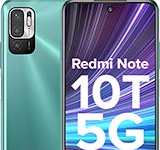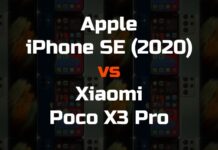Updated on November 8, 2023
When it comes to flagship smartphones, Apple and Xiaomi are two prominent brands that capture the market with their innovative features and cutting-edge technology.
In this blog post, we will compare five notable features of the Apple iPhone 13 and Xiaomi Mi 11, shedding light on what sets them apart.
Display
The Apple iPhone 13 boasts a Super Retina XDR OLED display with a size of 6.1 inches and a resolution of 1170 x 2532 pixels. It offers a visually immersive experience with vibrant colors and sharp contrast.
On the other hand, the Xiaomi Mi 11 features a slightly larger 6.81-inch AMOLED display with a resolution of 1440 x 3200 pixels. It supports HDR10+ and offers a high refresh rate of 120Hz, making it ideal for smooth scrolling and gaming.
Camera
Both smartphones excel in their camera capabilities. The iPhone 13 comes with a dual-camera setup, featuring two 12 MP lenses that deliver exceptional image quality and improved low-light performance.
On the other hand, the Xiaomi Mi 11 sports a triple-camera system, highlighted by an impressive 108 MP primary lens. This higher resolution allows for stunningly detailed photos, and the 13 MP ultra-wide-angle lens and 5 MP macro lens offer versatility in capturing various scenarios.
Operating System
The iPhone 13 runs on iOS 15, with the option to upgrade to iOS 16.4.1, offering a seamless and intuitive user experience.
Meanwhile, the Xiaomi Mi 11 operates on Android 11 with the MIUI 12.5 user interface, providing a customizable and feature-rich environment.
The choice between iOS and Android ultimately boils down to personal preference and the ecosystem one is already invested in.
Battery and Charging
In terms of battery capacity, the Xiaomi Mi 11 takes the lead with its 4600 mAh non-removable Li-Po battery. This larger capacity provides extended usage time. Additionally, the Mi 11 offers faster charging speeds, supporting 55W wired charging, which can fully charge the device in just 45 minutes.
In comparison, the iPhone 13 comes with a Li-Ion 3240 mAh battery and supports wired charging with PD2.0, offering a decent charging speed.
Memory and Storage
When it comes to memory and storage, the Xiaomi Mi 11 offers more options to suit different needs. It comes in multiple variants, including 6GB, 8GB, and 12GB of RAM, coupled with internal storage options of 128GB and 256GB.
On the other hand, the iPhone 13 provides 4GB of RAM across all its storage options, which include 128GB, 256GB, and 512GB.
It’s worth noting that the Xiaomi Mi 11 utilizes faster UFS 3.1 storage, which allows for quicker data transfer and improved app loading times.
Notable Features
Key Specs |  |  |
Apple iPhone 13 | Xiaomi Mi 11 | |
Launch | 2021, September 24 | 2021, January 01 |
Network Technology | GSM / CDMA / HSPA / EVDO / LTE / 5G | GSM / CDMA / HSPA / EVDO / LTE / 5G |
Sensors | Face ID, accelerometer, gyro, proximity, compass, barometer, Ultra Wideband (UWB) support | Fingerprint (under display, optical), accelerometer, gyro, compass, virtual proximity sensing |
Dimensions | 146.7 x 71.5 x 7.7 mm | 164.3 x 74.6 x 8.1 mm (Glass), 8.6 mm (Leather) |
Weight | 174 g | 196 g (Glass), 194 g (Leather) |
Build | Glass front (Corning-made glass), glass back (Corning-made glass), aluminum frame | Glass front (Gorilla Glass Victus), glass back (Gorilla Glass 5) or eco leather back, aluminum frame |
SIM | Nano-SIM and eSIM or Dual SIM (Nano-SIM, dual stand-by) | Dual SIM (Nano-SIM, dual stand-by) |
IP Rating | IP68 dust/water resistant (up to 6m for 30 min) | N/A |
Display Type | Super Retina XDR OLED | AMOLED |
Display Size | 6.1 inches | 6.81 inches |
Display Resolution | 1170 x 2532 pixels | 1440 x 3200 pixels |
Display Protection | Ceramic Shield glass | Corning Gorilla Glass Victus |
Operating System | iOS 15, upgradable to iOS 16.4.1 | Android 11, MIUI 12.5 |
Chipset | Apple A15 Bionic | Qualcomm SM8350 Snapdragon 888 5G (5 nm) |
CPU | Hexa-core | Octa-core |
GPU | Apple GPU (4-core graphics) | Adreno 660 |
Memory | Internal: 128GB 4GB RAM, 256GB 4GB RAM, 512GB 4GB RAM | Internal: 128GB 6GB RAM, 128GB 8GB RAM, 256GB 8GB RAM, 256GB 12GB RAM |
Main Camera | Dual: 12 MP | Triple: 108 MP, 13 MP, 5 MP |
Selfie Camera | Single: 12 MP | Single: 20 MP |
USB | Lightning, USB 2.0 | USB Type-C 2.0, OTG |
Battery Type | Li-Ion 3240 mAh | Li-Po 4600 mAh |
Charging | Wired, PD2.0, 50% in 30 min | 55W wired, PD3.0, QC4, 100% in 45 min |
Endurance Rating | 89h | 89h |
Colors | Starlight, Midnight, Blue, Pink, Red, Green | Horizon Blue, Cloud White, Midnight Gray, Special Edition Blue, Gold, Violet |
Price | $599 / €637 / £749 / C$1,099 / ₱42,990 / ₹55,999 / Rp10,374,419 | $880 / €799 / £749 / C$974 / ₱35,490 / ₹44,990 / Rp7,560,000 |
Full Specifications & Review |
Overall Conclusion
Both the Apple iPhone 13 and Xiaomi Mi 11 offer powerful and feature-packed smartphones.
The iPhone 13 shines with its optimized software integration and reliable performance, while the Xiaomi Mi 11 impresses with its high-resolution camera and superior battery life.
Ultimately, the choice between these two devices depends on individual preferences, such as the desired operating system, camera capabilities, and display preferences.
Your thoughts are welcome. Feel free to leave any comments below.


